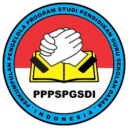PENINGKATAN CRITICAL THINKING DAN COLLABORATIVE SKILL MATEMATIKA MELALUI MODEL GROUP INVESTIGATION BERBANTUAN MAGIC BALL
DOI:
https://doi.org/10.35568/naturalistic.v2i2.204Abstract
Abstract
The problem in the mathematics learning process at SD Negeri Panjang 03 Ambarawa is that Critical Thinking and Collaborative skills are still low and have an impact on the students' learning outcomes that have not been satisfactory. Based on these problems it is necessary to conduct classroom action research conducted in two cycles, each cycle consists of five stages: planning, action implementation, observation, evaluation, and reflection. The purpose of this research is to improve Critical Thinking and Collaborative skill through application of Group Investigation model assisted Magic Ball media. The data collection instrument used questionnaires to measure Critical Thinking and Collaborative and observation sheets to obtain data on learning activities. Data analysis techniques using quantitative and comparative descriptive techniques. The results showed that the improvement of Critical Thinking and Collaborative skills was evident from the increase in total score of learners per cycle. Percentage improvement of Critical Thinking skill by 35% in cycle I. After improved the learning design in cycle II succeeded to increase by 64%. The increase also occurred in Collaborative skill, which is 29% in cycle I and 68% in cycle II. Based on the above description it can be concluded that the application of Group Investigation model assisted Magic Ball media is effective in improving Critical Thinking and Collaborative skills.
Keyword:
Group Investigation; Magic Ball; Critical Thinking; Collaborative
Abstrak
Permasalahan dalam proses pembelajaran matematika di SD Negeri Panjang 03 Ambarawa adalah bahwa keterampilan Critical Thinking dan Collaborative masih rendah dan berdampak pada hasil belajar siswa yang belum memuaskan. Berdasarkan permasalah tersebut maka perlu dilakukan penelitian tindakan kelas yang dilakukan dalam dua siklus, masing-masing siklus terdiri dari lima tahap yaitu perencanaan, pelaksanaan tindakan, observasi, evaluasi, dan refleksi. Tujuan dari penelitian ini adalah untuk meningkatkan keterampilan Critical Thinking dan Collaborative melalui penerapan model Group Investigation berbantuan media Magic Ball. Instrumen pengumpulan data menggunakan kuisioner untuk mengukur Critical Thinking dan Collaborative dan lembar observasi untuk memperoleh data tentang aktivitas pembelajaran. Tehnik analisis data menggunakan teknik deskriptif kuantitatif dan komparatif. Hasil penelitian menunjukkan adanya peningkatan keterampilan Critical Thinking dan Collaborative terlihat dari peningkatan total skor peserta didik setiap siklus. Persentase peningkatan keterampilan Critical Thinking sebesar 35% pada siklus I. Setelah diperbaiki rancangan pembelajarannya pada siklus II berhasil meningkat sebesar 64%. Peningkatan juga terjadi pada keterampilan Collaborative, yaitu sebesar 29% pada siklus I dan sebesar 68% pada siklus II. Berdasarkan uraian di atas dapat disimpulkan bahwa penerapan model Group Investigation berbantuan media Magic Ball efektif dalam meningkatkan keterampilan Critical Thinking dan Collaborative.
Kata Kunci:
Group Investigation; Magic Ball; Critical Thinking; Collaborative
Downloads
Downloads
Published
Versions
- 2020-07-06 (2)
- 2018-04-23 (1)
How to Cite
Issue
Section
License
Copyright of Journal Naturalistic : Jurnal Kajian Penelitian Pendidikan dan Pembelajaran (e-ISSN:2548-8589, p-ISSN:2528-2921).
Open Access Policy
This journal provides immediate open access to its content on the principle that making research freely available to the public supports a greater global exchange of knowledge.
This journal is open access journal which means that all content is freely available without charge to users or / institution. Users are allowed to read, download, copy, distribute, print, search, or link to full text articles in this journal without asking prior permission from the publisher or author. This is in accordance with Budapest Open Access Initiative.






